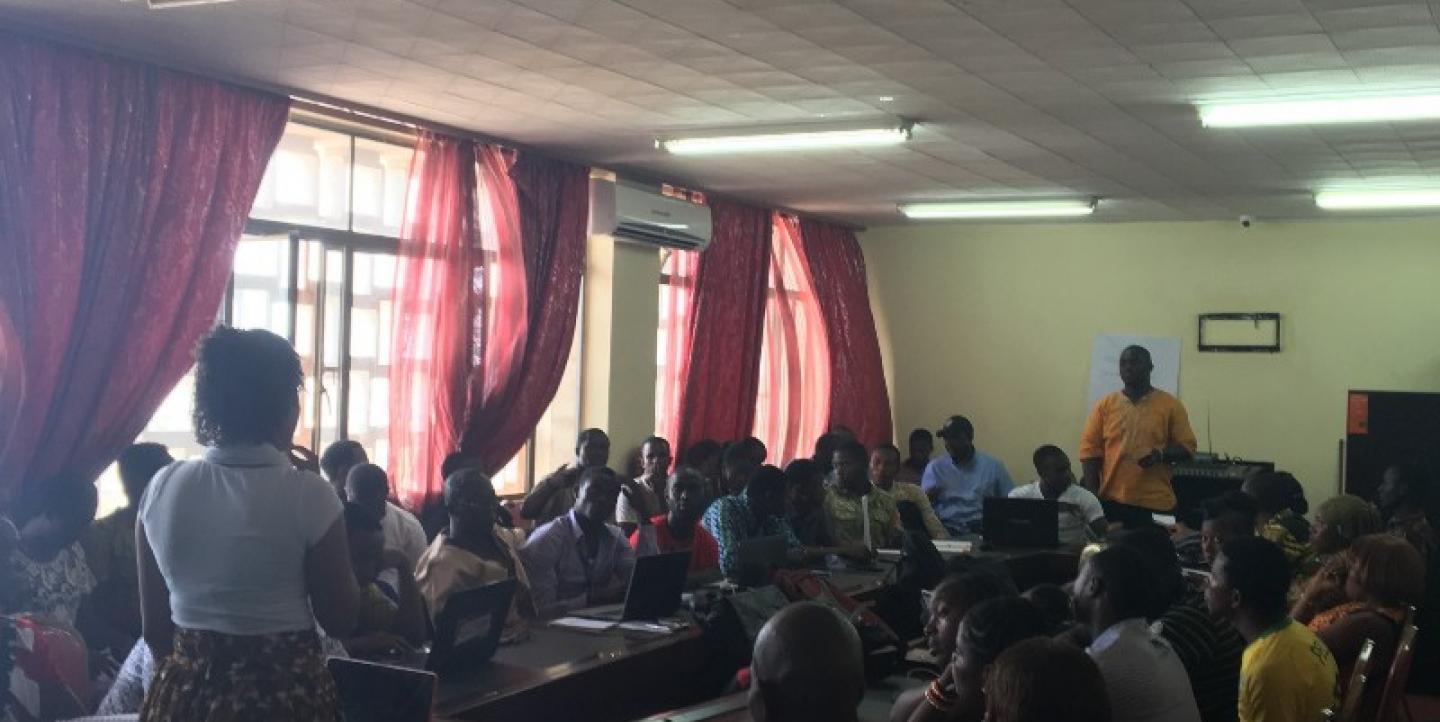It has been 21 years since the term “open data” was first used in a document by the American Scientific Agency. But the open data revolution in Africa is a lot younger than that: just a little over five years old. In this time, all African countries have had some data on them opened up, whether by their governments or other organizations. This in itself is a big win and the Government of Sierra Leone is one of the newer kids on the block, having launched its open data portal less than a year ago in June 2015.
To increase the awareness and use of Sierra Leone’s open data, the government worked with local access to information advocates and the World Bank to kick off a six-week Open Data Festival, the first of its kind in West Africa.
Members of the Code for Africa team joined the festival spending Open Data Day 2016 in Sierra Leone, running data literacy workshops in the capital Freetown. In this time, we learned quite a number of things:
Lesson 1: Quantity of data vs. data of good quality — a successful open data revolution needs the former as much as the latter
This is one of the main reasons data portals exist. In under two weeks in late February, Robin Kiplangat and I were able to learn a lot about Sierra Leone just by looking at their data here, here, here and here, among other places.
Any data analyst or journalist will tell you that when it comes to datasets, more is definitely more. Multiple data sources on a subject might be a headache, especially when the data in them does not marry up, but this often forms the basis for in-depth analysis and investigative reporting. While quality is often subjective — depending on what questions one has — good data is that which gives accurate, and sometimes new, information.
Lesson 2: Leave no country behind
As time goes by, the open data needs in different nations evolve. Issues such as timeliness in releasing data, consistency, unlimited access and total transparency become become central in defining good data. However, the reality on the ground is that many countries remain in the dark in matters relating to open data.
A lot of data is lost in huge, old, musty silos with no backup records and at the expense of citizens and progress most times. With no access to meaningful data, journalists have a hard time telling succinct data stories.
Sierra Leone served as a great reminder that the groundwork with open data is not yet complete. Until all and sundry know what PDFs are, where to find information by their governments, how to stand up for themselves and demand their rights using this data, we still have work to do. Some nations definitely traverse the growth curve faster than others, but we should, by no means, leave any country behind.
Code for Africa runs digital literacy workshops in Africa, the Middle East and South America to ensure as many journalists, technologists and data enthusiasts as possible are equipped with meaningful skills to help them find, access, use and reuse open data for the benefit of their communities. You can find out more about our data bootcamps.
Lesson 3: Proper planning, diversification and adaptability - the three things that impact is dependent on
At the start of the Open Data Festival, Code for Africa was set to run a data scraperthon. The aim was to introduce the students, lawmakers, journalists and technologists in the room to the concepts of open data and why it should matter to them as well as teach them how to find data online and show them all the wonderful things they can achieve with open data — tools, data stories, you name it.
Great plan, but what happens in a room full of 100+ interested people but only a few laptops between them and frequent power outages? Does the learning stop? What offline learning methods serve as a great precursor to online methodologies?
How can the process of making tea help you explain design processes? How can cutting out stories in newspapers on the subject of health help teach your audience the principles of online search?
Adapt or die, but try.
In conclusion
In the places where few or no open data evangelists have been before, a great need and thirst for knowledge exists. It is our duty, as the open data community, to keep finding these places and keep sharing as much as we can until everyone is reached. Leave no border uncrossed.
The six-week Open Data Festival culminated in a two-day conference in which projects that teams had been working on were presented.
Check out a map of Africa's current open data portals below:
This post originally appeared on Code for Africa’s Medium and is republished on IJNet with permission. Serah Njambi Rono is web developer & developer advocate for Code for Africa.
Main image: Serah Rono of Code for Africa runs a session at Sierra Leone’s d|Scraperthon. Courtesy of Serah Rono.

